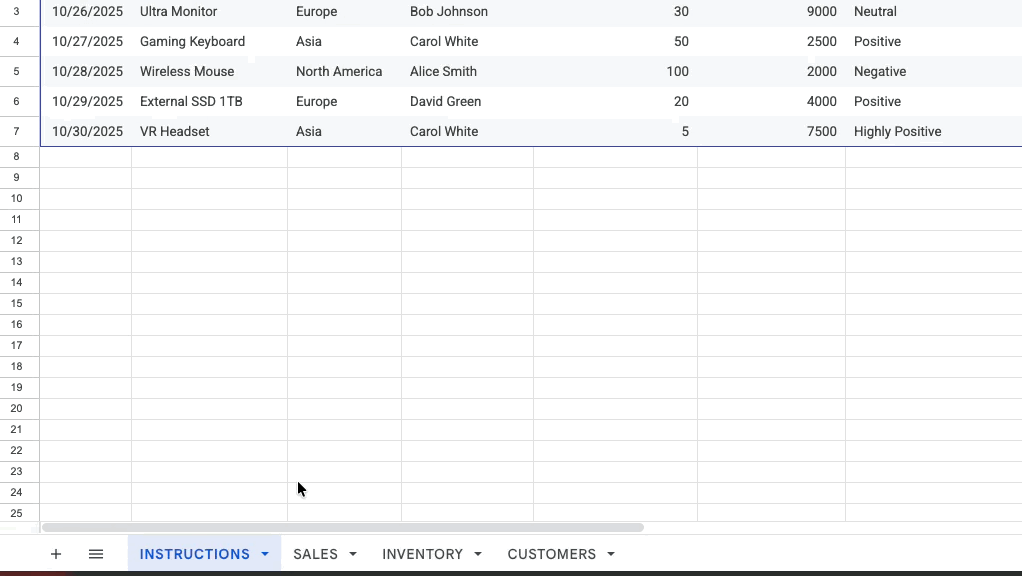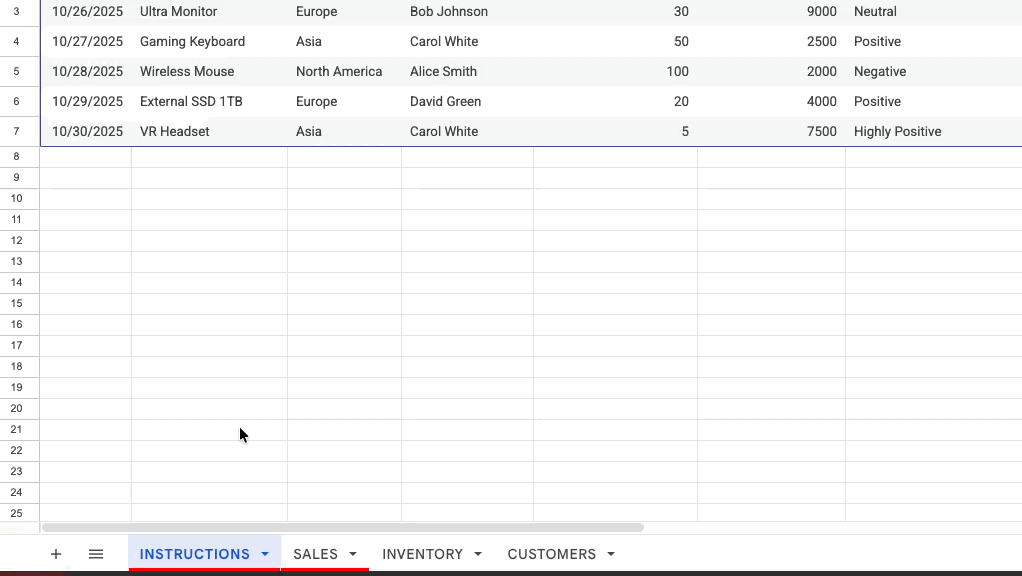- The Friday Fix
- Posts
- #145. A coccyx
#145. A coccyx
Hi! Welcome to The Friday Fix! You’re reading this because you probably stumbled upon this post somewhere on the internet instead of where it should be—in your inbox. But no worries; we can fix that.
Who am I? I’m Shem Opolot, a health professional turned content creator, passionate about helping people be their best selves in life and work.
Why should you subscribe?
I have over ten years of work experience in healthcare, program management, and data analytics on two continents. So, I know a little about helping you work smarter
I comb through tonnes of self-improvement content so you don’t have to, and I distill the content into bite-sized wisdom for you
I’ll occasionally make you laugh
If this sounds good, click the subscribe button below, add your email, read my welcome email (check your spam folder or “Promotion” tabs), and follow ALL the instructions. This is important so you don’t miss future posts.

Hi! I'm Shem Opolot, and this is The Friday Fix, my weekly newsletter. If you've received it, you’re either subscribed or someone forwarded it to you. If you fit into the latter (yes, I’m the kind of person who uses words like “latter”) camp and want to subscribe, then click on the shiny button below:
You can also skim the past posts here.
Otherwise, grab a seat 🪑.

HAPPY FRIDAY 🎉 Gun to your head right now, what are your three favorite songs ever? Don’t overthink it; consider it a lesson in decisiveness. For me, right now: Here I Am by Rick Ross, Nelly, and Avery Storm; No Letting Go by Wayne Wonder; and Tonight by Nonso Amadi. Send me your three if you dare.
***
Every now and then, I experience email deliverability issues outside my control that prevent some of you from getting the newsletter(s). I’m sorry. It’s the platform, not me.
Rest assured that unless I state otherwise, this newsletter will come out every Friday. In the future, after checking your spam and hitting refresh several times (because sometimes I’m simply late), check the web page (bookmark it) for the latest issue if it’s missing from your inbox. I appreciate all those of you who message me to ask if “everything is okay at home” when they can’t find the latest issue. It warms my heart that you look forward to these.
Note: As my personal digital failsafe, if the latest issue is missing from your inbox and the webpage, and it’s no longer Friday, and I didn’t announce a break, please reach out. This newsletter could save my life 😅.

LIFE.
A Coccyx.
The future of work and education is shifting right under your feet, and you have a coccyx.
Several years ago, I was in Geneva when the rhetoric of the “Fourth Industrial Revolution” was coined. The rhetoric, coined by a well-funded World Economic Forum, attempted to prophesy an imminent future of automation and digitization en masse, resulting in a new workplace hungry for new skills.
This rhetoric, conceived and stuffed into a money gun, was launched at Africa via the likes of the Mastercard Foundation, with monies disbursed to get asses in seats in schools (formal or vocational) and eventually asses in offices (formal or informal).
Now, say what you want about the message and the messenger, but one thing it should’ve done was get us to question if the current system—our entire co-existence, really—was working. Such reflection would’ve enabled us to question if our current work, schools, and skills made sense. If our materials matched our mission.
But thinking is hard, so we did nothing.
And as you know, ignoring problems doesn’t make them go away.
So the same questions about the future of work and school have resurfaced.
It has never been more important to think critically about how you want to live out the rest of your days. This isn’t about purpose or passion or any of the other things we’ve been trained to farm within. This is simpler.
When you close your eyes, what do you want your life to look like?
To get that life, you must use what you have in your hands. Now, sometimes you don’t naturally have certain things—talents, skills, connections, passports—in your hands, but you can pick them up and carry them more gracefully than those who were born with them clenched in their tight baby fists.
***
My Bible-in-a-year plan led me to the parable of talents as taught by Jesus. The parable shows the Bible’s capacity to eke out some scientifically sound wisdom. For those of you who didn’t complete the assigned reading, the parable essentially teaches two things: 1) to whom much is given, much is required; and 2) if you don’t use it, you lose it.
Let’s leave the first one for Spider-Man and focus on the second.
If you’ve ever taken a human anatomy class, you may know the coccyx is also called the tailbone. The cul-de-sac of your spine, if you let me cook.
Evolutionary biologists say your coccyx is an echo of the lives of your once-tailed ancestors, who required tails for balance while climbing trees. The theory follows that over time, these ancestors grounded themselves, finding more effective ways to get food that didn’t require immunity to a fear of heights. As a result, they no longer needed a tail, and your coccyx is a bony epitaph of that time.
The coccyx is like a talent you lost when you stopped using it.
And like the coccyx, some of your “talents” never fully go away despite your worst efforts. That’s why you can’t forget how to write, ride a bike, or drive a car.
But if you don’t practice or repeat those “talents” often, you can get rusty. That is why it felt awkward—but not insurmountable—the last time you picked up a pen to handwrite a note.
The difference between you handwriting a note to a loved one once a year and a professional calligrapher is repetition, repetition, repetition. To stay passably good at something, you can learn it once and then forget about it. To be exceptional at something, you have to do it every day.
This is why I write as often as I do.
While balancing on the sliding scale of work in this new age, sans tail, we’re racing against time and tech. You mustn’t follow some predefined career path; you just have to become exceptional at the “talents” that can get you to that place you envision when you close your eyes. Mediocrity, now more than ever, is a preserve for machines. Machines will conquer the passable: the average essay, the average email, the average score on an exam. But you must be better at the right thing. Every day. One brick at a time.

THINGS.
A quote.
Someone on Twitter asked why sudden loss of status leads to depression, and one of my favorite accounts responded eloquently:
We mistake external validation for coherence, when coherence is an inner alignment with the field itself.Status only matters when you’ve forgotten how to self-generate meaning.
The moment you no longer need reflection to exist, you become immune to hierarchy - and paradoxically, that’s when true authority emerges.
Because the highest form of status isn’t granted by others, it’s gravitational. It pulls recognition naturally because it doesn’t need it.
A picture.
I finally tried padel (pronounced padelle, I’m told), and as a wannabe athlete who won my first trophies in badminton and table tennis, this sport was made for me to dominate.

Ignore my wrinkly shirt and focus on how good my arms look in this picture.

WORK.
A tiny but mighty tip
You have data:

But as highlighted in the image, I want you to focus on the sheet names at the bottom.
Did you know you can edit the sheet names to make them more meaningful to you and anyone you’re collaborating with?
For example, you can color-code them:

Simply right-click on the sheet tab and go to “Change color.”
You can even add emojis to the sheet names:

Click on the sheet name until it’s editable, then paste your emoji of choice.
Don’t be basic. Take my course.

FUN.
The Friday Fix playlist
Your picks
> 65 essential books for children
> Rapper 50 Cent adjusted for inflation
> What time is it in _____?
Have a great weekend,
— Shem


Reply